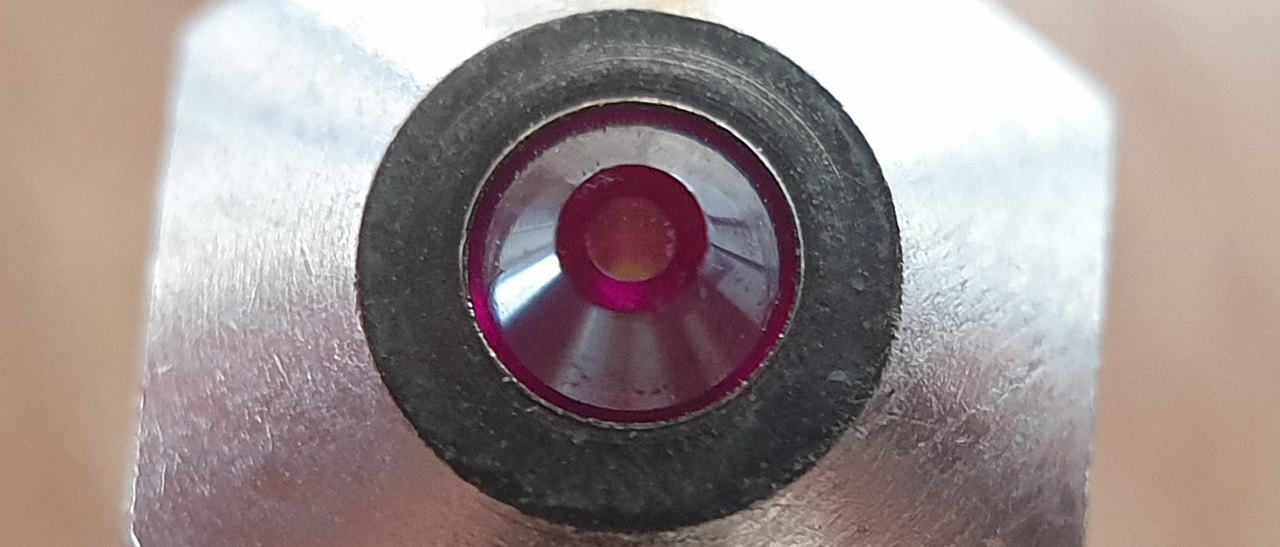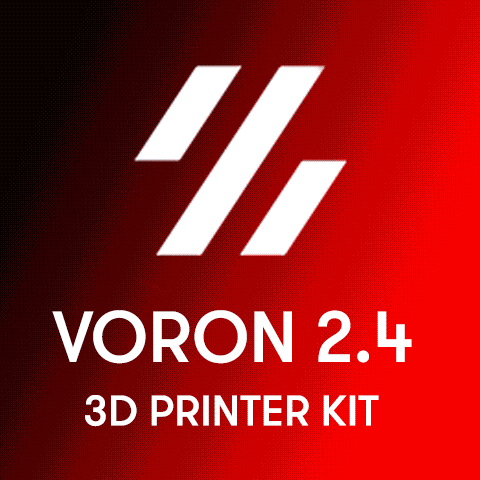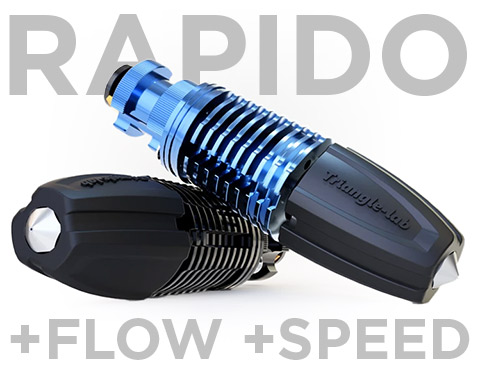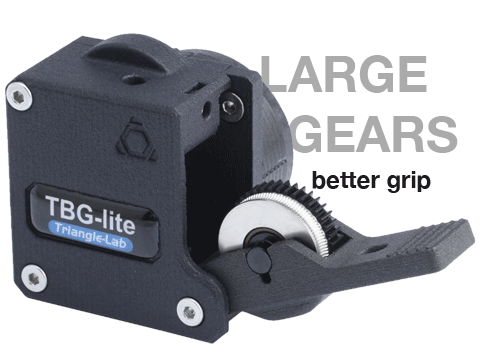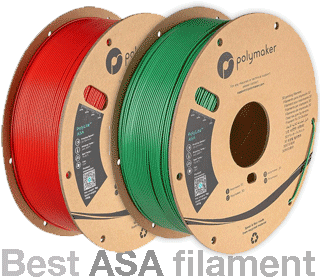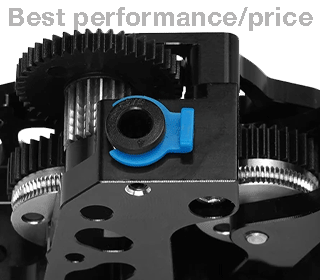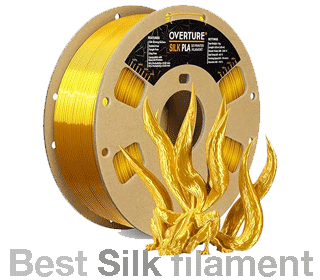I used to enjoy the Olsson Ruby nozzle on a 3d printer I sold. It was the first brass version and I never had issues with it. I wanted to install this all-mighty device again on one of my printers and while searching for cheaper alternatives, I found the Trianglelab Ruby nozzle.
Currently, Trianglelab manufactures two Ruby nozzle versions:
- a standard Ruby nozzle in a brass body (similar to the one I had);
- a high-temperature Ruby nozzle in a plated copper alloy body.
Each version exists in V6, MK8, and MK10 formats. The copper Ruby nozzle is slightly more expensive but is a better buy. It has 3 times better heat conductivity than brass which is essential at higher printing temperatures. So, I bought the V6 version and this is my hands-on review.
Check the price:
–
best price seen $68, normally $70+
Is this Ruby Nozzle worth buying?
For the price of a Ruby Nozzle, you can probably buy 30 brass nozles or 6 hardened steel nozzles, or 3 dual-metal nozzles. Why buy a Ruby Nozzle then?
I believe it targets people who want to buy and install one nozzle and never change it again. If you screw it with the right torque without breaking it, the Ruby nozzle will outlast your hotend and probably your printer.
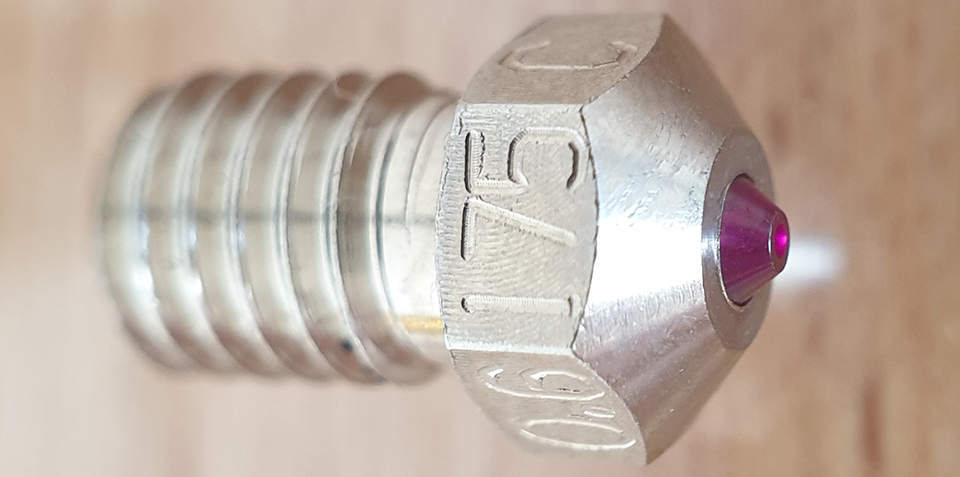
There are of course other benefits. It prints all materials – from composites filled with abrasive additives (carbon fiber, wood, metals …) to sticky filaments. As it is High-Temperature (HT) you can even print PEEK and PEI. The Ruby tip will never wear.
The body of the HT Trianglelab nozzle is made of copper alloy for fast heat transfer. Copper has 10 times better thermal conductivity than steel and 3 times better than brass. It means better temperature control, which becomes important at higher temperatures. The copper alloy is hardened as well. It is plated with nickel, which helps reduce copper oxidation.
Which size Ruby Nozzle to choose
Trianglelab sells 0.4, 0.6, and 0.8mm ruby nozzles. If you want to print filaments with added particles, take at least 0.6mm in size, because most of these materials will cause clogs with smaller nozzles. With a 0.6mm nozzle, the minimum layer height is 0.2mm, which is still a fine resolution.
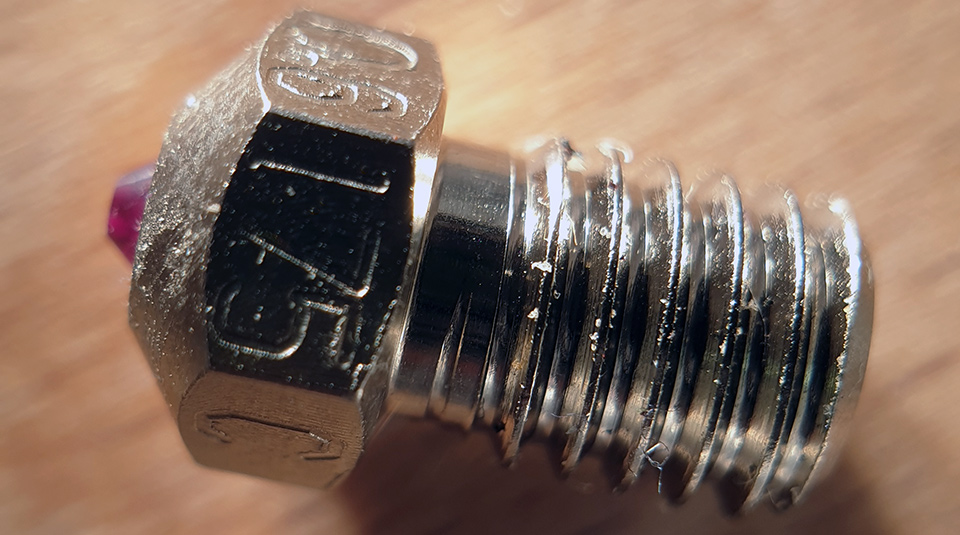
Conclusion
The HT Ruby Nozzle is certainly one of the best Trianglelab nozzles and probably the best value-for-money ruby nozzle on the market. I use it now on my workhorse – the Voron Trident equipped with Dragon hotend, and 2 years after I first installed it on the CR-10 it is still performing great.
I have the 0.6 mm size and I don’t recall any clogging issues (I print a lot and probably there were some for 2 years, but it is not something I remember). It is a very reliable nozzle and my favorite so far.
Update Feb 2023
Finally, after 3 years of daily service, my TL Ruby nozzle was decommissioned. It is still working OK, but the Ruby tip has irregular edges. This was by far my most used nozzle and I tested it even with PEEK at 450C. I guess nothing lasts forever, ruby or not.
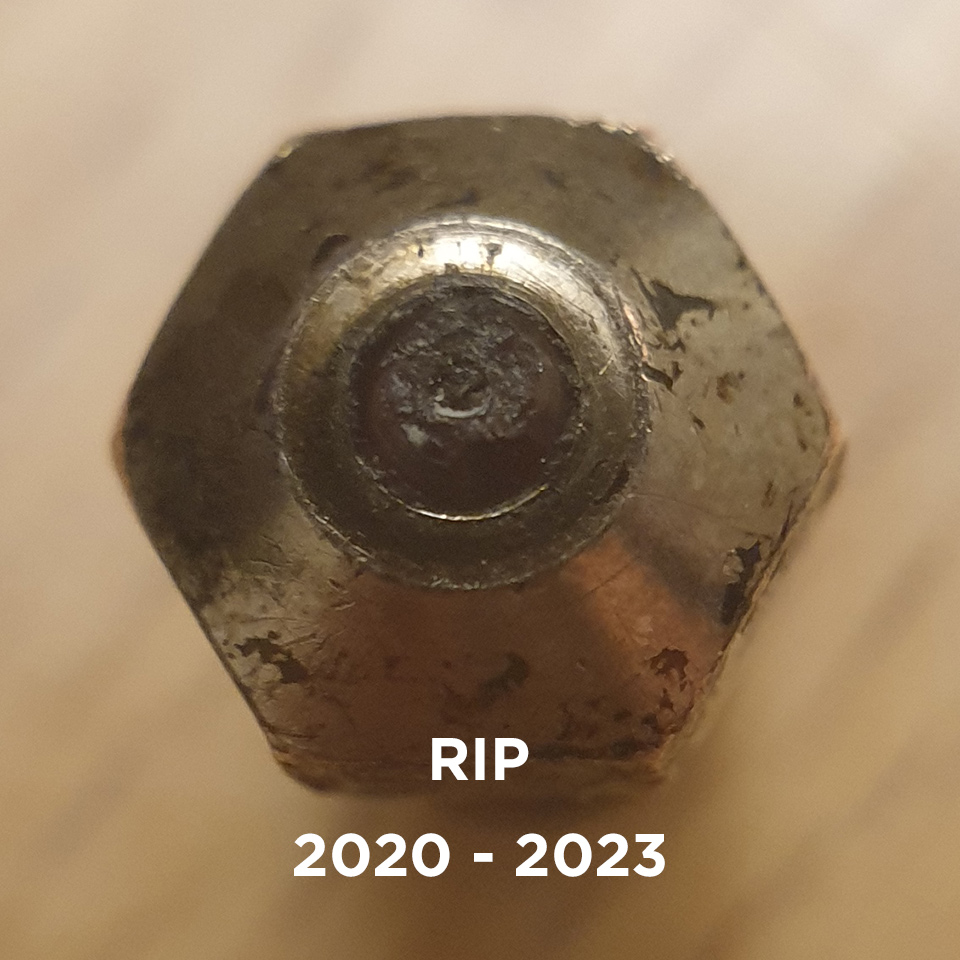
As you see the plating survived pretty well.
I ordered a replacement – the same 0.6 high-temperature ruby nozzle from Trianglelab. I also considered the new Ruby nozzle with DLC coating from Phaetus, however, I hesitated to buy it because the body is from hardened steel (the worst heat transfer).
Buy the TL Ruby Nozzle:

